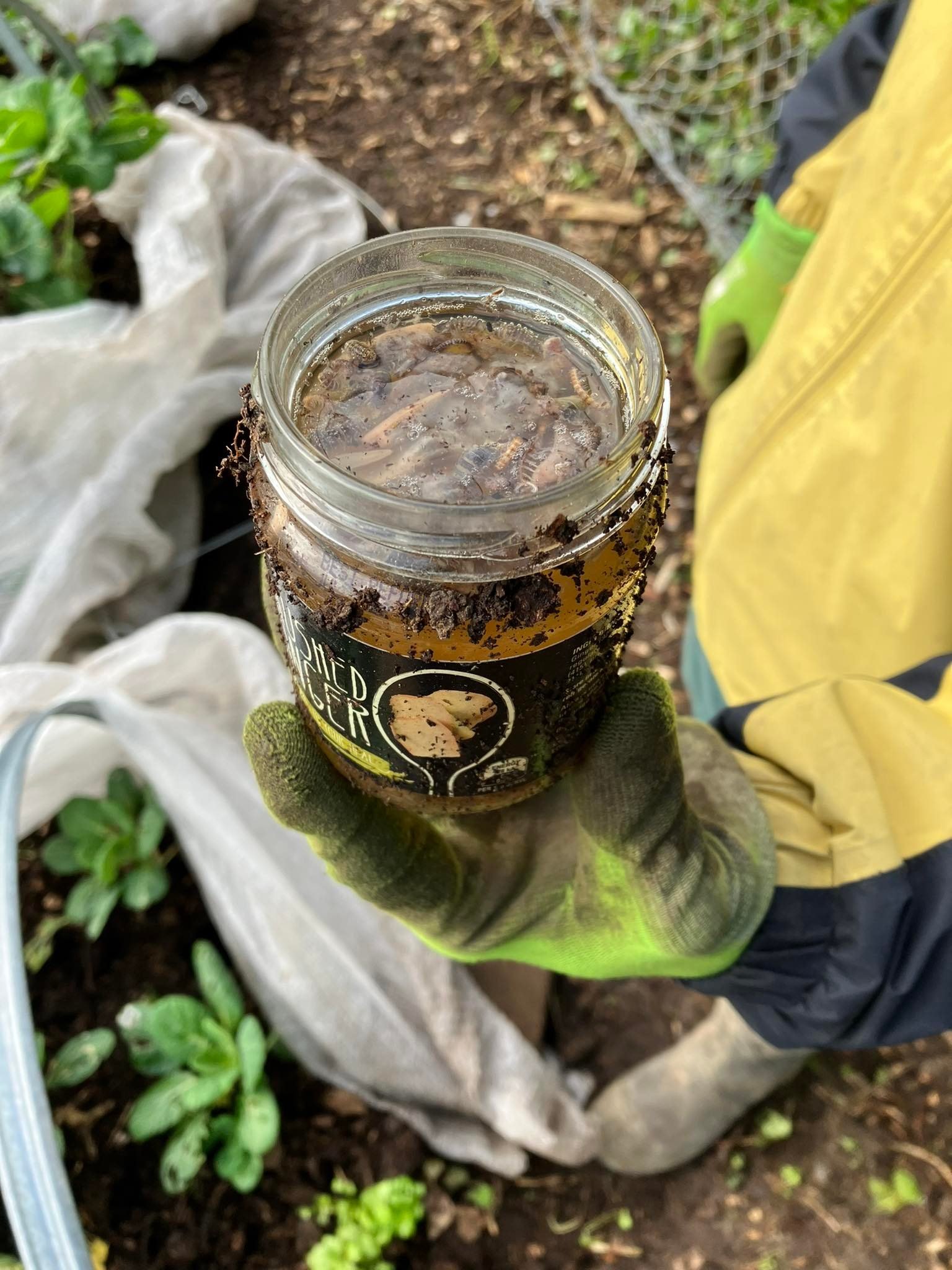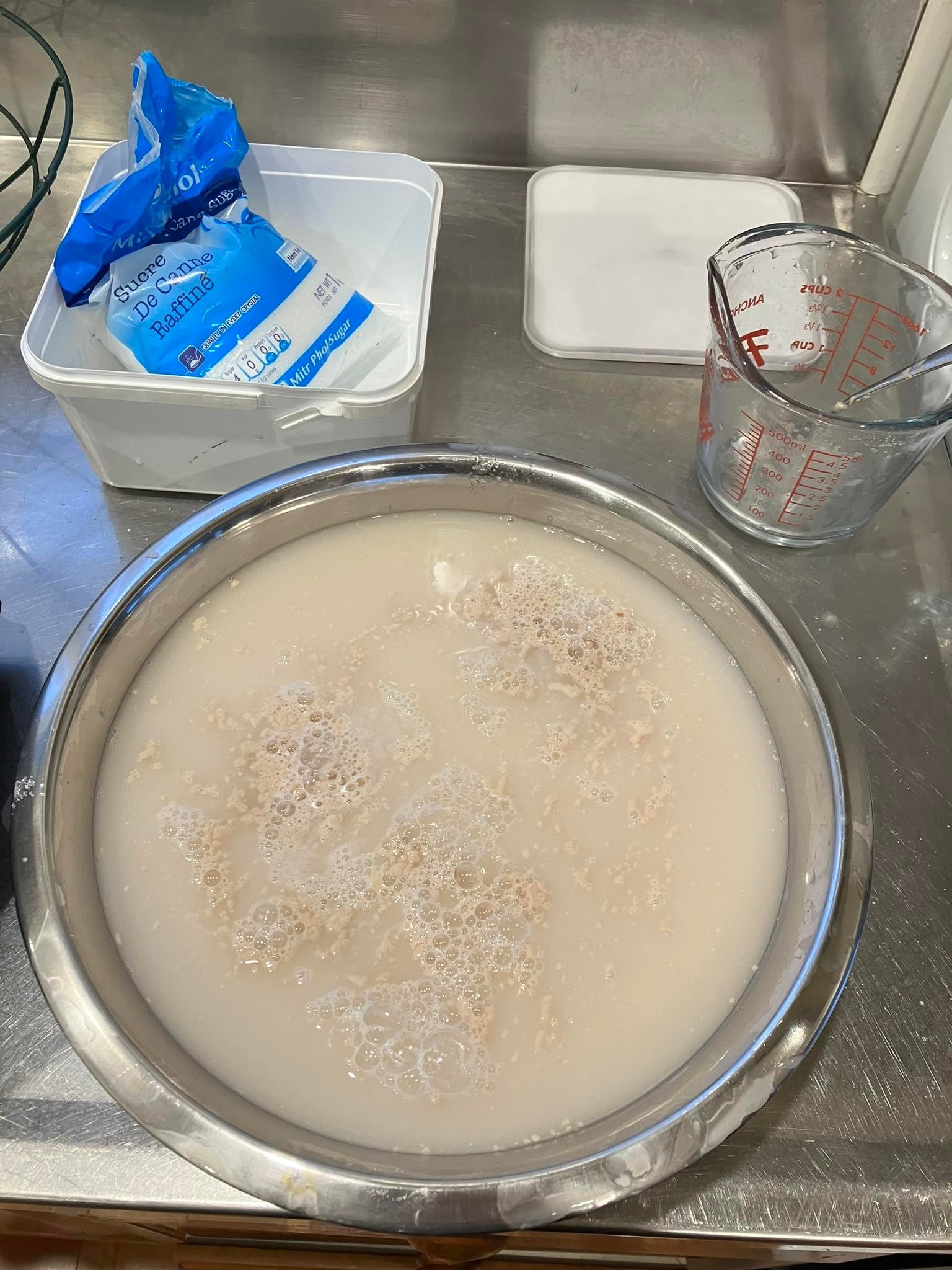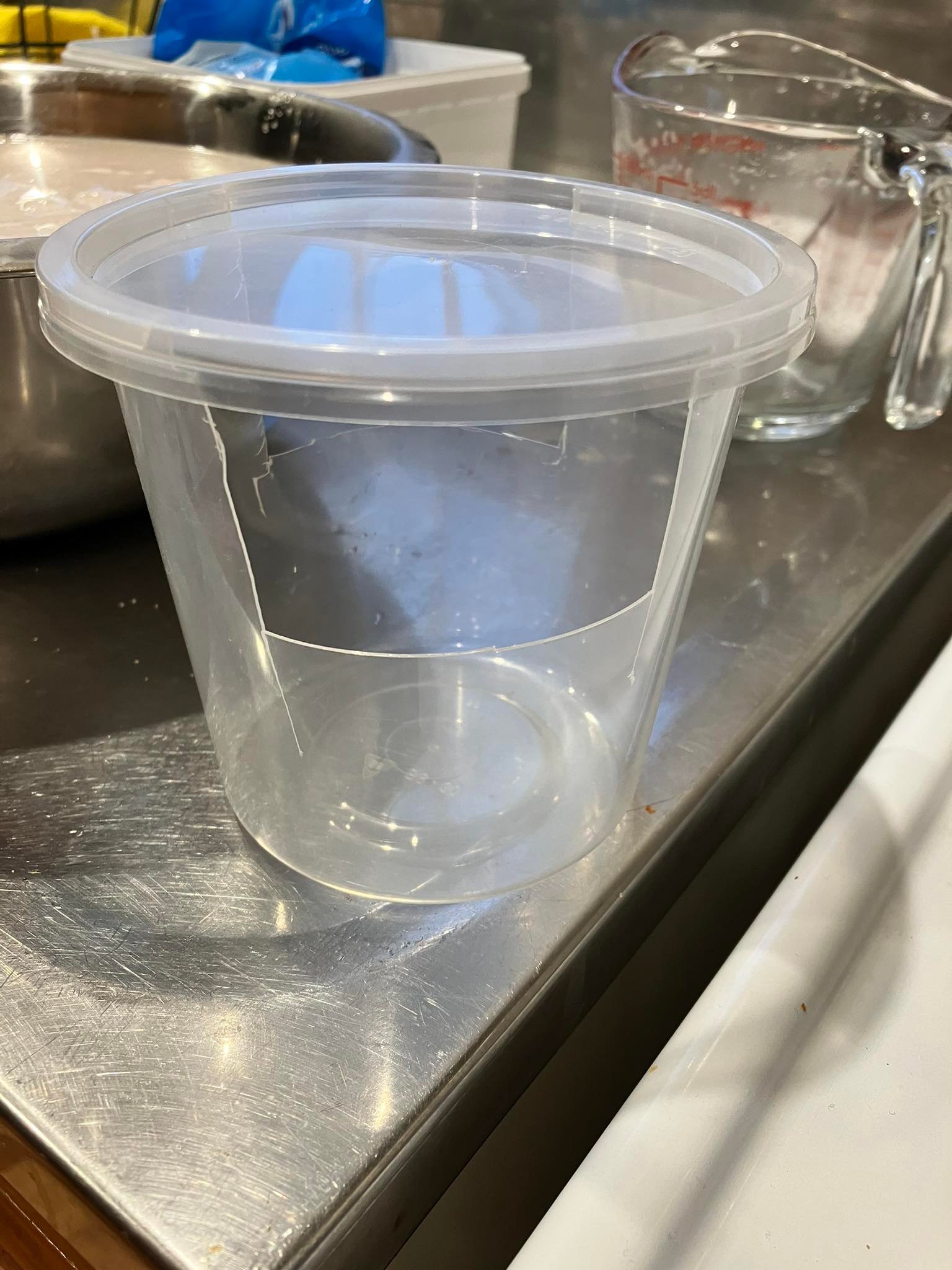Slugs in the garden!
Beer Trap
We’ve been getting our beds ready for planting out seedlings. Because Slugs and Snails love chomping on baby plants, we’ve been trying many methods to remove them from our beds and provide a safe start for our seedlings.
One method our farmers have tried is mixing a concoction of yeast, sugar and water to create yeast traps, which lures them in so they can be removed from the garden beds without the need for poisons. Yeast traps work the same as beer traps and need to be placed 1.5-2.5m apart. We use a recipe that consists of 1 cup water, 1 tsp sugar and ½ tsp yeast. We recommend using a container with a lid so the rain won’t interfere, the container works as a “drop of doom” type trap and needs to be checked and changed often. We did find beer works best, but yeast traps are much more cost effective.
Farmer Hayley has also bought some Diatomaceous Earth from Sharpes Feed Barn, who kindly gave us a discount—thanks Sharpes! This is meant to irritate the endoskeleton and kill the slugs after they roll over it. Similarly egg shells also do this which the farmers are trying too. DE and eggshells are natural sources of calcium which will build up our calcium levels and help to prevent deficiency in the soil.
Another strategy we are trying is using vermicast spray, this helps deter slugs and snails and boosts the plants immunity. We make our own by aerating worm compost for 24 hours in chlorine free water then applying as a foliar spray.
One of our goals is to grow high-brix plants, which is a measurement of the sugar content in the sap. Generally speaking, the higher the brix, the healthier the plant. Sap sucking insects, slug and snails will get a belly ache from eating high-brix plants and won’t eat as much, instead, they’ll target the low-brix ones. We’ll be utilising many methods to improve soil fertility, and increase microbial populations and fungi (when attached to plant roots, fungi helps the plant uptake nutrients). This all helps to increase Brix levels, which makes for tastier, healthier kai, plants which are stronger, more resistant to frost and less attractive to pests.





